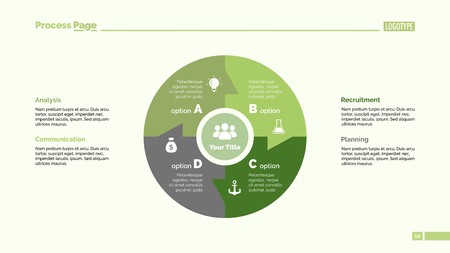Introduction to UK Private Health Insurance Exclusions
When considering private health insurance in the UK, it is vital for policyholders to understand the concept of exclusions. Exclusions are specific conditions, treatments, or circumstances that are not covered by an insurance policy. Insurers outline these limitations clearly within their policy documents to set expectations and manage risk. For UK residents, being aware of what is excluded is just as important as knowing what is covered, as this directly impacts both access to private healthcare services and personal financial planning. Understanding exclusions helps policyholders avoid unexpected costs and ensures there are no surprises when making a claim. By gaining a clear grasp of exclusions from the outset, individuals can make informed decisions about whether a particular health insurance plan meets their needs and budget, reinforcing the importance of thoroughly reviewing all terms before committing to a policy.
2. Common Exclusions in UK Private Health Cover
When considering private medical insurance (PMI) in the UK, it is crucial to understand that not all treatments or conditions are covered. Insurers typically set out a list of exclusions—medical services, situations, or pre-existing conditions that will not be paid for under your policy. Recognising these exclusions can help you avoid unexpected costs and make informed decisions when selecting or using your private health cover.
Typical Treatments and Conditions Not Covered
| Treatment/Condition | Description |
|---|---|
| Chronic Conditions | Ongoing conditions like diabetes, asthma, and hypertension are often excluded as they require long-term management rather than acute intervention. |
| Pre-existing Conditions | Any illness or condition you had symptoms of or received treatment for before your policy began is usually not covered, unless specifically agreed by the insurer. |
| Maternity & Pregnancy Care | Routine pregnancy and childbirth costs are generally not included, although complications may be considered under certain circumstances. |
| Cosmetic Surgery | Treatments for aesthetic purposes, such as facelifts or breast augmentation without medical necessity, are almost always excluded. |
| Fertility Treatment | Procedures like IVF and other assisted conception treatments are commonly omitted from standard policies. |
Excluded Scenarios and Additional Limitations
- Emergency Treatment: PMI does not typically cover A&E admissions; NHS remains the primary provider for emergencies.
- Experimental Treatments: New or non-standard therapies not recognised by NICE (National Institute for Health and Care Excellence) are frequently excluded.
- Self-inflicted Injuries: Any injury resulting from deliberate self-harm or substance misuse will likely not be covered.
Cost Implications of Exclusions
If a treatment falls within an exclusion, policyholders must pay out-of-pocket or use NHS services. For example, managing a chronic condition privately can cost several thousand pounds annually, while cosmetic procedures may run into similar sums depending on complexity. Understanding these potential expenses is vital for effective financial planning.

3. Pre-Existing Medical Conditions
Understanding how private health insurers in the UK define and manage pre-existing medical conditions is crucial for any policyholder. In the context of UK private health insurance, a pre-existing condition generally refers to any illness, injury, or symptom that you have experienced or sought treatment for before your policys start date. Insurers typically require a detailed medical history during the application process, which they use to assess risk and determine what exclusions might apply.
How Do Insurers Define Pre-Existing Conditions?
Most UK insurers rely on a standard definition: any health issue for which you have had symptoms, diagnosis, medication, advice, or treatment within a specified period—usually five years—before the policy begins. This definition is intentionally broad, encompassing chronic illnesses like diabetes and asthma as well as recent injuries or minor complaints that led to a GP visit.
Handling Pre-Existing Conditions: Moratorium vs. Full Medical Underwriting
There are two primary underwriting approaches:
Moratorium Underwriting
This method automatically excludes all pre-existing conditions from the last five years but may allow coverage if you remain symptom-free and require no treatment for a set period (often two years) after the policy starts.
Full Medical Underwriting
Here, you provide your complete medical history at application. The insurer will then specify which conditions are excluded based on your past health record. These exclusions are usually permanent unless otherwise reviewed by the insurer in the future.
Impact on Coverage Eligibility
The presence of pre-existing conditions can significantly affect both your eligibility for cover and your premiums. Some insurers may refuse cover altogether for certain serious conditions or impose higher costs. Others might offer coverage with specific exclusions listed in your policy documents. It is essential to scrutinise these terms to avoid surprises when making a claim.
Cost-Benefit Considerations
From a cost perspective, policies excluding pre-existing conditions tend to be more affordable initially but may not offer value if you anticipate needing care for ongoing issues. Conversely, comprehensive coverage comes with higher premiums but broader protection. Comparing these options helps ensure your policy aligns with both your healthcare needs and budget.
4. Exclusions Based on Lifestyle and Behaviour
Private health insurance providers in the UK apply specific exclusions related to policyholders lifestyle choices and behaviours. Understanding these exclusions is essential, as they can significantly impact your coverage eligibility and claims process. Insurers assess risk profiles carefully, and individuals engaging in high-risk activities or habits may find certain treatments or events excluded from their policies.
Common Lifestyle-Related Exclusions
| Lifestyle Factor | Typical Exclusion | Notes/Examples |
|---|---|---|
| Alcohol Misuse | Treatments for illnesses or injuries resulting from excessive alcohol consumption are often excluded. | Liver disease due to long-term heavy drinking may not be covered. |
| Drug Abuse | Claims arising from illegal drug use or substance abuse are excluded. | Rehabilitation for non-prescribed drugs is generally not insured. |
| Smoking/Tobacco Use | Certain respiratory conditions or complications directly linked to smoking may be restricted. | Some policies may increase premiums for smokers rather than exclude cover entirely. |
| Risky Activities | Injuries sustained during hazardous sports or pursuits might be excluded unless additional cover is purchased. | Bungee jumping, skydiving, and motor racing are common examples. |
UK Insurer Standards: Key Considerations
- Clear Definitions: Each insurer defines what constitutes “excessive” alcohol intake or “high-risk” activity differently. Always check your policy wording for specifics.
- Disclosure Requirements: Failing to declare lifestyle habits accurately can result in denied claims or policy cancellation.
- Add-on Options: Some insurers offer optional extensions for certain activities, but these often come with higher premiums and stricter conditions.
Cost Implications of Lifestyle Choices
The financial impact of lifestyle exclusions varies. For example, a smoker may face higher monthly premiums, while someone participating in adventure sports might need specialist cover at additional cost. It is vital to weigh these factors when comparing policies, as hidden exclusions could lead to significant out-of-pocket expenses during treatment or recovery.
5. Cost Implications and Managing Out-of-Pocket Expenses
Understanding exclusions in UK private health insurance is crucial, as they have a direct impact on the actual cost borne by policyholders. When certain treatments or conditions are excluded from your policy, you may be responsible for covering these expenses yourself—often at full private rates, which can be substantial. The most common exclusions, such as chronic condition management, pre-existing illnesses, or certain elective procedures, mean that you need to budget for these possibilities outside of your insurance cover.
How Exclusions Affect Policyholder Costs
Exclusions can undermine the predictability of healthcare expenses. While private health insurance aims to reduce financial uncertainty, any service not covered translates into out-of-pocket payments. For example, if mental health care is excluded, ongoing therapy sessions would need to be self-funded, potentially costing hundreds of pounds per month. Similarly, if outpatient drugs are not included, even routine prescriptions could add up quickly over time.
Strategies to Manage or Anticipate Expenses
To mitigate financial surprises, policyholders should adopt several key strategies:
1. Thorough Policy Review
Scrutinise your policy documents to identify all specific exclusions and limitations. Understanding exactly what is and isn’t covered allows for informed budgeting and avoids unpleasant surprises when seeking treatment.
2. Consider Top-Up Covers
Certain insurers offer supplementary products that fill common gaps in core policies—for instance, dental or optical cover, or extended outpatient care. Evaluate whether adding such options provides better value than paying for services as needed.
3. Build an Emergency Fund
Given the unpredictable nature of uncovered costs, maintaining a dedicated healthcare savings pot is sensible. This buffer can help absorb the shock of unexpected bills without impacting your regular finances.
4. Compare Private and NHS Options
If excluded treatments are required, consider whether the NHS can provide those services at no direct cost. This hybrid approach ensures you maximise value from both public and private provision while minimising personal expenditure.
In summary, exclusions play a significant role in shaping the real-world costs associated with UK private health insurance. By understanding how they affect your financial responsibility and proactively managing potential out-of-pocket expenses through careful planning and strategic choices, policyholders can maintain control over their healthcare spending and avoid unnecessary economic strain.
6. Reviewing and Challenging Exclusions
Understanding the exclusions in your UK private health insurance policy is crucial, but equally important is knowing how to address concerns if you believe an exclusion has been misapplied or is unclear. Policyholders have several avenues to seek clarity, challenge decisions, or request amendments regarding specific exclusions.
Requesting Clarity on Policy Exclusions
If any part of your policy’s exclusions is ambiguous, start by contacting your insurer directly. UK insurers are obliged under the Financial Conduct Authority (FCA) guidelines to provide clear and transparent information. Prepare your questions in advance and request written confirmation for any verbal explanations. This can be vital should a dispute arise later.
Formal Appeals Process
If you disagree with an exclusion or its application to your claim, most insurers offer a formal complaints and appeals process. Review your policy documentation for step-by-step instructions, which typically include submitting a written appeal outlining why you believe the exclusion should not apply. Include all relevant supporting evidence—such as medical reports or correspondence—to strengthen your case.
Timeframes and Documentation
Adhere strictly to timeframes set out by your insurer for appeals, usually found in the policy booklet or website. Keep detailed records of all communications and ensure that everything is submitted within the required deadlines to avoid automatic dismissal of your appeal.
Escalating Your Complaint
If you remain dissatisfied after completing the insurer’s internal process, you have the right to escalate the matter. In the UK, this means referring your complaint to the Financial Ombudsman Service (FOS). The FOS offers a free and impartial review of disputes between consumers and financial businesses, including health insurers.
Key Considerations:
- Ensure you have exhausted all internal complaints procedures before approaching the FOS.
- The FOS will require comprehensive documentation of all previous correspondence and decisions made by your insurer.
Seeking Independent Advice
If you need further assistance, organisations such as Citizens Advice or independent insurance advisers can offer guidance tailored to UK-specific regulations and practices. They can help you understand your rights as a policyholder and navigate complex insurance language.
Summary: Proactive Policy Management
Regularly reviewing your policy documents, maintaining clear communication with your insurer, and knowing how to challenge exclusions empowers you as a policyholder in the UK. By taking these steps, you can ensure that you receive fair treatment and maximise the value of your private health insurance cover.


